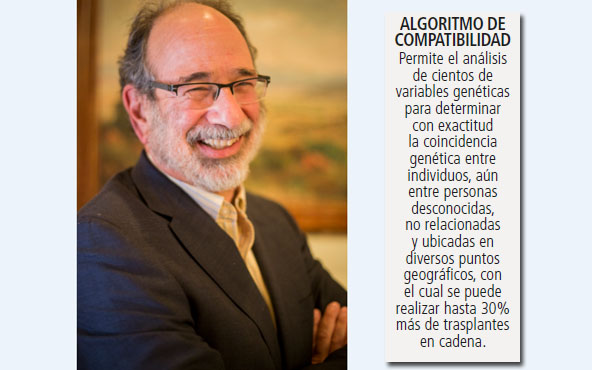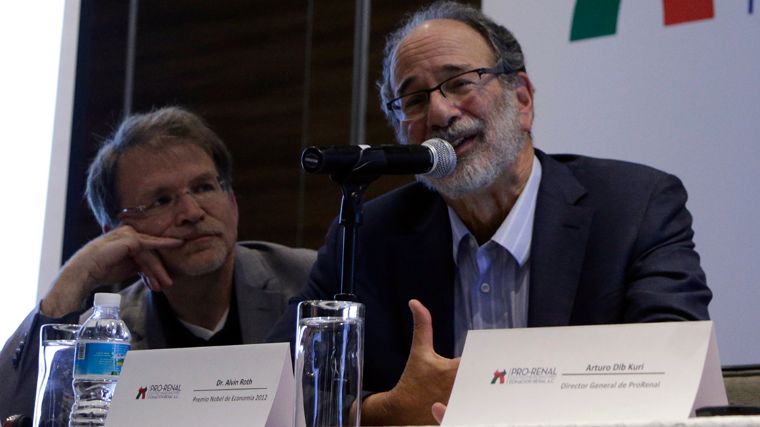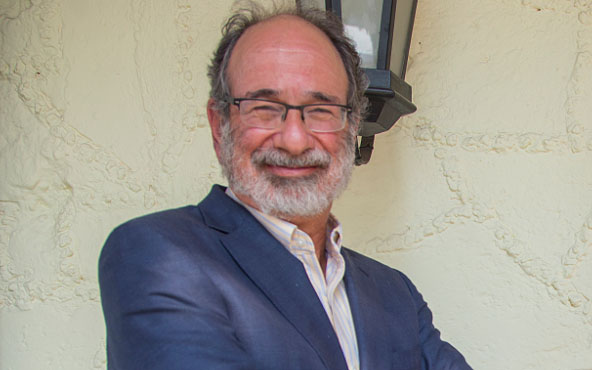My recent visit was to speak about kidney transplantation in Mexico, and to raise awareness of and support for the new kidney exchange network, Pro-Renal, which has already collaborated successfully with the Alliance for Paired Donation (APD).
Kidney exchange (and international cooperation for global kidney exchange) received a lot of favorable press, here are some reports.
In Forbes Mexico:
Cada año mueren 7 millones por falta de un trasplante de riñón: Alvin E. Roth
Para el Premio Nobel, las barreras que impiden un trasplante renal deberían ser derribadas, porque los tratamientos más costosos son también los que rezagan los mejores resultados.
Jessica Martínez, mayo 23, 2018
[Google Translate: Every year 7 million die in the absence of a kidney transplant: Alvin E. Roth ... the barriers that prevent a kidney transplant should be demolished, because the most expensive treatments are also those that lag behind the best results."
***********
Anuncian campaña para duplicar el número de trasplantes renales en México
mayo 24, 2018
Kidney exchange (and international cooperation for global kidney exchange) received a lot of favorable press, here are some reports.
In Forbes Mexico:
Cada año mueren 7 millones por falta de un trasplante de riñón: Alvin E. Roth
Para el Premio Nobel, las barreras que impiden un trasplante renal deberían ser derribadas, porque los tratamientos más costosos son también los que rezagan los mejores resultados.
Jessica Martínez, mayo 23, 2018
[Google Translate: Every year 7 million die in the absence of a kidney transplant: Alvin E. Roth ... the barriers that prevent a kidney transplant should be demolished, because the most expensive treatments are also those that lag behind the best results."
***********
Anuncian campaña para duplicar el número de trasplantes renales en México
mayo 24, 2018
 |
| Rafael Pardo, Mike Rees, Al Roth, Marisol Robles, Arturo Dib Kuri |
************
Llega a Mexico la nonacion renal pareada [Paired renal donation arrives in Mexico]
*************
Llega a Mexico la nonacion renal pareada [Paired renal donation arrives in Mexico]
*************
**********
Un algoritmo, para salvar vidas [An algorithm to save lives...]
***********
Aplicarán algoritmo en México para hallar donantes de riñón
25/05/2018 05:31 XIMENA MEJÍA
*********
Aplicarán algoritmo en México para hallar donantes de riñón
25/05/2018 05:31 XIMENA MEJÍA
*********
***************
Buscan salvar vidas con algoritmo para trasplantes [They seek to save lives with an algorithm for transplants]
************
En México, con algorismos de compatibilidad se buscará donación de riñones
********
mayo 28, 2018
*********
México ya tiene su ‘tinder’ para riñones BÁRBARA ANDERSON 08.06.2018
*****************
*********
México ya tiene su ‘tinder’ para riñones BÁRBARA ANDERSON 08.06.2018
*****************
**********
Update: here's a story from an interview that must have been conducted during that visit that came out only in September:
ENTREVISTADOS • SEPTIEMBRE 17, 2018
Alvin Roth, Premio Nobel de Economía 2012

photos: Bruno Sánchez











